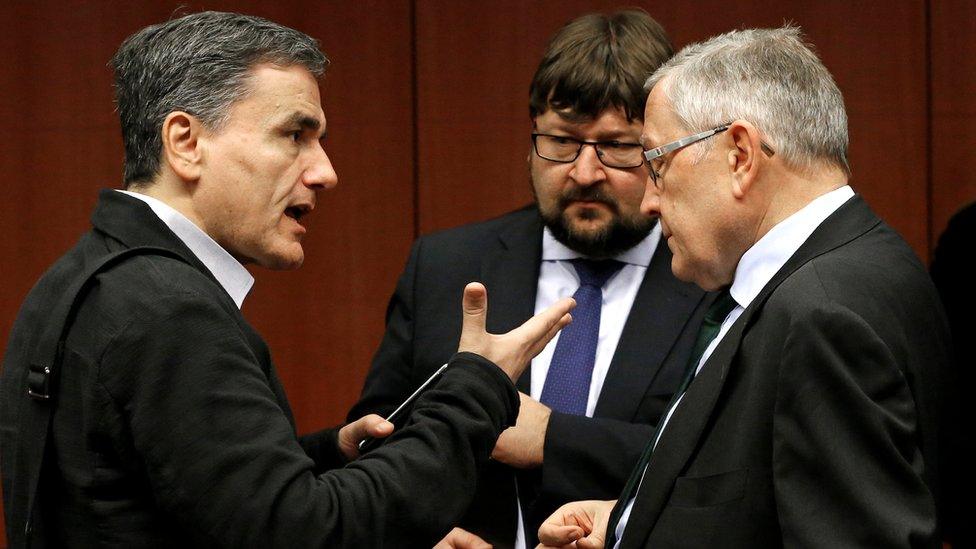Greek debt burden eased by creditors
- Published

Greek Finance Minister Euclid Tsakalotos (left) welcomed the debt relief
Greece has won some relief from its debt burden following the latest talks with eurozone finance ministers.
The Eurogroup agreed to a series of measures, which include waiving an interest rate increase which was due to take place next year.
Other measures will also lighten the burden, without cutting the overall debt pile.
But ministers did not sign-off a second review of Greece's bailout programme, which could unlock further debt relief.
Greece has needed three bailouts since 2010 and relies on credit from international bodies to avoid bankruptcy.
Monday's measures to ease the debt burden are being seen as a reward for the progress that Greece has made in cutting spending and reforming its economy.
"This will start helping the Greek economy all at once," said Greek Finance Minister Euclid Tsakalotos.

Analysis by Andrew Walker, BBC World economics correspondent
It's not the first time Greece has received debt relief from the eurozone. It probably won't be the last either.
It is not a reduction in the value of the outstanding debt - a "haircut" for the lenders.
That has been ruled out many times by the eurozone. It would be politically toxic back home for the likes of Germany.
The relief comes instead in the shape of lower interest rates and longer repayment periods.
That is still worth having. If you take this kind of thing far enough it gradually takes a loan closer to being a grant.
All the same, the pressure on the eurozone to do more for its biggest bailout customer will surely come back.

But eurozone ministers said there were still questions to be answered over reform efforts, which is why the latest review of the bailout process has still not been approved.
Differences also remain over Greece's 2018 budget plan.
A successful review would trigger further talks over debt relief.
They could even result in Greek bonds being approved for purchase by the European Central Bank, which would be an important breakthrough.
Talks over the bailout programme have been complicated by disagreement between the International Monetary Fund and European officials.
The IMF wants a reduction in the face value of Greek debt, but that is opposed by European ministers and, in particular, Germany.
- Published15 October 2016
